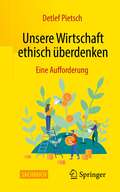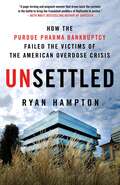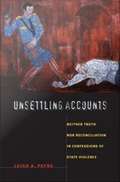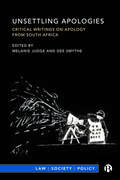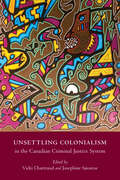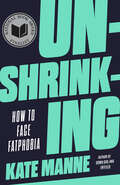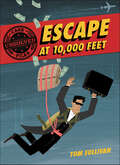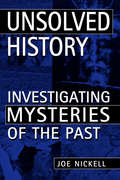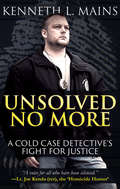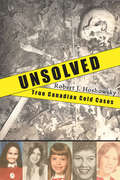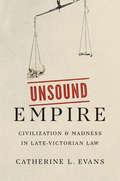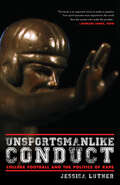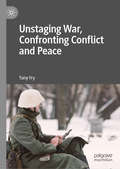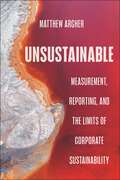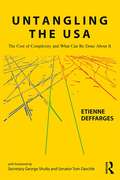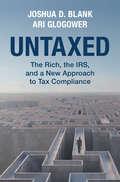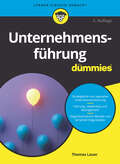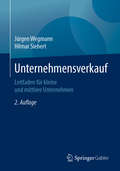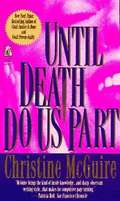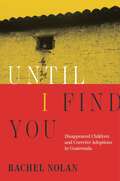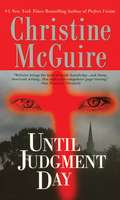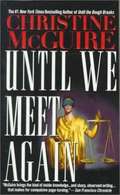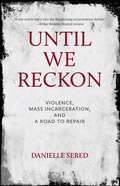- Table View
- List View
Unsere Wirtschaft ethisch überdenken: Eine Aufforderung
by Detlef PietschEs läuft ganz und gar nicht rund in unserer Wirtschaft: Kam bereits vor der Pandemie der Wohlstand nicht mehr bei allen an, wurde die soziale Ungleichheit durch Corona noch weiter verschärft. Von Bildungsgerechtigkeit konnte spätestens zu Zeiten von Homeschooling nicht mehr die Rede sein. Zusätzlich bedrohte Hochwasser im Sommer 2021 einige Gebiete in Deutschland und hinterließ viele Tote. Einige verloren in kurzer Zeit ihr Hab und Gut und standen buchstäblich vor dem Nichts. Der Klimawandel ist nicht mehr zu leugnen, er hat uns alle mit Wucht erfasst. Dass wir die Ökonomie dringend mit der Ökologie versöhnen müssen, ist mittlerweile allen klar. Die Frage ist lediglich, wie das konkret aussehen soll. Nehmen wir diese Ereignisse als Aufforderung, intensiv darüber nachzudenken und zu diskutieren, wie wir unsere Wirtschaft ethisch auf ein neues Niveau heben können.
Unsettled: How the Purdue Pharma Bankruptcy Failed the Victims of the American Overdose Crisis
by Ryan HamptonA shocking inside account of reckless capitalism and injustice in the Purdue Pharma bankruptcy case.In September 2019, Purdue Pharma—the maker of OxyContin and a company controlled by the infamous billionaire Sackler family—filed for bankruptcy to protect itself from 2,600 lawsuits for its role in fueling the U.S. overdose crisis. Author and activist Ryan Hampton served as co-chair of the official creditors committee that acted as a watchdog during the process, one of only four victims appointed among representatives of big insurance companies, hospitals, and pharmacies. He entered the case believing that exposing the Sacklers and mobilizing against Purdue would be enough to right the scales of justice. But he soon learned that behind closed doors, justice had plenty of other competition—and it came with a hefty price tag.Unsettled is the inside story of Purdue’s excruciating Chapter 11 bankruptcy proceedings, the company’s eventual restructuring, and the Sackler family’s evasion of any true accountability. It’s also the untold story of how a group of determined ordinary people tried to see justice done against the odds—and in the face of brutal opposition from powerful institutions and even government representatives. Although America was envisioned as an equitable place, where the vulnerable are protected from the greed of the powerful, the corporate-bankruptcy process betrays those values. In its heart of hearts, this system is built to shield the ultra-wealthy, exploit loopholes for political power, promote gross wealth inequality, and allow companies such as Purdue Pharma to run amok.The real story of the Purdue bankruptcy wasn’t that the billion-dollar corporation was a villain, a serial federal offender. No matter what the media said, Purdue didn’t do this alone. They were aided and abetted by the very systems and institutions that were supposed to protect Americans. Even on-your-side elected officials worked against Purdue’s victims—maintaining the status quo at all costs.Americans deserve to know exactly who is responsible for failing to protect people over profits—and what a human life is worth to corporations, billionaires, and lawmakers. Unsettled is what happened behind closed doors—the story of a sick, broken system that destroyed millions of lives and let the Sacklers off almost scot-free.
Unsettling Accounts: Neither Truth Nor Reconciliation in Confessions of State Violence
by Leigh A. PayneAn Argentine naval officer remorsefully admits that he killed thirty people during Argentina's Dirty War. A member of General Augusto Pinochet's intelligence service reveals on a television show that he took sadistic pleasure in the sexual torture of women in clandestine prisons. A Brazilian military officer draws on his own experiences to write a novel describing the military's involvement in a massacre during the 1970s. The head of a police death squad refuses to become the scapegoat for apartheid-era violence in South Africa; he begins to name names and provide details of past atrocities to the Truth Commission. Focusing on these and other confessions to acts of authoritarian state violence, Leigh A. Payne asks what happens when perpetrators publicly admit or discuss their actions. While mechanisms such as South Africa's Truth and Reconciliation Commission are touted as means of settling accounts with the past, Payne contends that public confessions do not settle the past. They are unsettling by nature. Rather than reconcile past violence, they catalyze contentious debate. She argues that this debate--and the public confessions that trigger it--are healthy for democratic processes of political participation, freedom of expression, and the contestation of political ideas. Payne draws on interviews, unedited television film, newspaper archives, and books written by perpetrators to analyze confessions of state violence in Argentina, Chile, Brazil, and South Africa. Each of these four countries addressed its past through a different institutional form--from blanket amnesty, to conditional amnesty based on confessions, to judicial trials. Payne considers perpetrators' confessions as performance, examining what they say and what they communicate nonverbally; the timing, setting, and reception of their confessions; and the different ways that they portray their pasts, whether in terms of remorse, heroism, denial, or sadism, or through lies or betrayal.
Unsettling Apologies: Critical Writings on Apology from South Africa (Law, Society, Policy)
by Melanie Judge and Dee SmytheThere has recently been a global resurgence of demands for the acknowledgement of historical and contemporary wrongs, as well as for apologies and reparation for harms suffered. Drawing on the histories of injustice, dispossession and violence in South Africa, this book examines the cultural, political and legal role, and value of, an apology. It examines the multiple ways in which ‘sorry’ is instituted, articulated and performed, and critically analyses its various forms and functions in both historical and contemporary moments. Bringing together an interdisciplinary team of contributors, the book’s analysis offers insights that will be invaluable to global debates on the struggle for justice.
Unsettling Colonialism in the Canadian Criminal Justice System
by Vicki Chartrand Josephine SavareseThe development of the Canadian criminal justice system has been central to the dispossession of Indigenous populations and the safeguarding of colonial relations of power. Through the mechanisms of surveillance, segregation, and containment, the justice system ensures that Indigenous peoples remain in a state of economic deprivation, social isolation, and political subjection. Contributors to this volume examine historical expressions and ongoing reinforcement of settler colonialism with a view to illuminating how it manifests in contemporary police actions and criminal proceedings. Using an anti-colonial lens, alternative conceptualizations and practices of justice are explored. The volume includes testaments from Indigenous people currently in federal penitentiaries across Canada that show current penal and carceral arrangements for Indigenous people.
Unshrinking: How to Face Fatphobia
by Kate ManneNATIONAL BOOK AWARD FINALIST • The definitive takedown of fatphobia, drawing on personal experience as well as rigorous research to expose how size discrimination harms everyone, and how to combat it—from the acclaimed author of Down Girl and Entitled&“An elegant, fierce, and profound argument for fighting fat oppression in ourselves, our communities, and our culture.&”—Roxane Gay, author of HungerFor as long as she can remember, Kate Manne has wanted to be smaller. She can tell you what she weighed on any significant occasion: her wedding day, the day she became a professor, the day her daughter was born. She&’s been bullied and belittled for her size, leading to extreme dieting. As a feminist philosopher, she wanted to believe that she was exempt from the cultural gaslighting that compels so many of us to ignore our hunger. But she was not.Blending intimate stories with the trenchant analysis that has become her signature, Manne shows why fatphobia has become a vital social justice issue. Over the last several decades, implicit bias has waned in every category, from race to sexual orientation, except one: body size. Manne examines how anti-fatness operates—how it leads us to make devastating assumptions about a person&’s attractiveness, fortitude, and intellect, and how it intersects with other systems of oppression. Fatphobia is responsible for wage gaps, medical neglect, and poor educational outcomes; it is a straitjacket, restricting our freedom, our movement, our potential.In this urgent call to action, Manne proposes a new politics of &“body reflexivity&”—a radical reevaluation of who our bodies exist in the world for: ourselves and no one else. When it comes to fatphobia, the solution is not to love our bodies more. Instead, we must dismantle the forces that control and constrain us, and remake the world to accommodate people of every size.
Unsolved Case Files: D.B. Cooper and the Missing Money (Unsolved Case Files Ser. #1)
by Tom SullivanAn ALA Top Ten Best Graphic Novel for ChildrenA thrilling new graphic nonfiction series about real FBI cases, launching with a gripping, minute-by-minute account of the only unsolved airplane hijacking in the U.S.CASE NO. 001: NORJAK NOVEMBER 24, 1971 PORTLAND, OREGON2:00 P.M. A man in his mid-forties, wearing a suit and overcoat, buys a ticket for Northwest Orient Airlines flight 305 bound for Seattle.3:07 P.M. The man presents his demands: $200,000 in cash and four parachutes. If the demands are not met, he threatens to detonate the explosive device in his briefcase.So begins the astonishing true story of the man known as D.B. Cooper, and the only unsolved airplane hijacking case in the United States. Comic panels, reproductions of documents from real FBI files, and photos from the investigation combine for a thrilling read for sleuths of all ages.What better way to draw readers into nonfiction than through an exciting graphic novel? This series will appeal to readers of series such as Nathan Hale’s Hazardous Tales. Fans of history and whodunits, CSI-club kids, and graphic novel enthusiasts alike will be pulled in by the suspenseful, complex, and kid-appropriate cases in this series.Sidebars provide fun facts about pre-2001 air travel, serial numbers on currency, airplane design, and more. Backmatter showcases period photos and primary source material in FBI archives.
Unsolved History: Investigating Mysteries of the Past
by Joe NickellWhat constitutes historical truth is often subject to change. Joe Nickell demonstrates the techniques used in solving some of the world's most perplexing mysteries, such as the authenticity of Abraham Lincoln's celebrated Bixby letter, the 1913 disappearance of writer and journalist Ambrose Bierce, and the apparent real-life model for a mysterious character in a novel by Nathaniel Hawthorne. Nickell also uses newly uncovered evidence to further investigate the identity of the Nazi war criminal known as ""Ivan the Terrible.""
Unsolved No More: A Cold Case Detective's Fight For Justice
by Kenneth L. MainsThe life and crime solving of the renowned detective who&’s &“a voice for all who have been silenced&” (Lt. Joe Kenda [ret], the &“Homicide Hunter&”).As a law enforcement officer for more than fifteen years, Detective Kenneth L. Mains has investigated thousands of crimes, including working undercover with the FBI, solving cold case homicides, investigating the Mafia, and leading one of the greatest cold case organizations ever assembled. This is his story and that of the victims for whom he speaks.&“A tremendous amount of respect for his investigative insights and his integrity.&” —Jim Clemente, former FBI profiler and writer for Criminal MindsUnsolved No More will take readers on a journey with a struggling kid who barely graduated high school to a teenager who joined the Marine Corps and finally a man who put himself through college to accomplish his lifelong goal of becoming a police detective. Mains, who is routinely sought out by law enforcement and victims&’ families to help solve cold cases, writes about his own investigations to show readers how he goes about solving crimes others had given up on.&“Kenneth Mains is a law enforcement equivalent of a surgeon of cold cases . . . he diagnoses the issues and, working with precision, dissects the cases with consummate skill and care . . . I highly recommend this wonderful book if you want to understand the cold case investigatory process or if you want to dive into some cases that are filled with twists, turns, and more than a few surprises.&” —Blaine Pardoe, New York Times–bestselling author
Unsolved: True Canadian Cold Cases
by Robert J. HoshowskyDespite advances in DNA testing, forensics, and the investigative skills used by police, hundreds of crimes remain unsolved across Canada. With every passing day trails grow colder and decades can pass before a new lead or witness comes forward if one comes forward. In Unsolved, Robert J. Hoshowsky examines twelve crimes that continue to haunt us. Some cases are well-known, while others have virtually disappeared from the public eye. All of the cases remain open, and many are being re-examined by police using the latest tools and technology. Hoshowsky takes the reader through all aspects of the crimes and how police are trying to solve them using three-dimensional facial reconstructions, DNA testing, age-enhanced drawings, original crime scene photos, and more. None of the individuals profiled in Unsolved deserved their fate, but their stories deserve to be told and their killers need to be brought to justice.
Unsound Empire: Civilization and Madness in Late-Victorian Law
by Catherine L. EvansA study of the internal tensions of British imperial rule told through murder and insanity trialsUnsound Empire is a history of criminal responsibility in the nineteenth‑century British Empire told through detailed accounts of homicide cases across three continents. If a defendant in a murder trial was going to hang, he or she had to deserve it. Establishing the mental element of guilt—criminal responsibility—transformed state violence into law. And yet, to the consternation of officials in Britain and beyond, experts in new scientific fields posited that insanity was widespread and growing, and evolutionary theories suggested that wide swaths of humanity lacked the self‑control and understanding that common law demanded. Could it be fair to punish mentally ill or allegedly “uncivilized” people? Could British civilization survive if killers avoided the noose?
Unsportsmanlike Conduct: College Football and the Politics of Rape
by Jessica LutherA meticulously researched and powerful exposé on the epidemic of cover-up that surrounds sexual assault and college football players.“Not to reckon with Luther’s book would be an abdication not only of one’s moral faculty but also of one’s fandom . . . Luther doesn’t just want to save future victims; she wants to save college football.” —New York Times Book Review“Highly relevant, hard-hitting, much-needed information that reveals the widespread existence of rape by sports players on college campuses.” —Kirkus ReviewsFootball teams create playbooks, in which they draw up the plays they will use on the field. Playbooks are how teams work and why they win. This book is about a different kind of playbook: the one coaches, teams, universities, police, communities, the media, and fans seem to follow whenever a college football player is accused of sexual assault. It’s a deep dive into how different institutions—the NCAA, athletic departments, universities, the media—run the same plays over and over again when these stories break. If everyone runs his play well, scrutiny dies down quickly, no institution ever has to change how it operates, and the evaporation of these cases into nothingness looks natural. In short, this playbook is why nothing ever changes.Unsportsmanlike Conduct unpacks this societal playbook piece by piece, and not only advocates that we destroy the old plays, but also suggests we replace them with ones that will force us to finally do something about this issue.Political sportswriter and Edge of Sports imprint curator Dave Zirin (the Nation) has never shied away from criticizing that which die-hard sports fans hold dear. The Edge of Sports titles will address issues across many different sports—football, basketball, swimming, tennis, etc.—and at both the professional and nonprofessional/collegiate levels. Furthermore, Zirin brings to the table select stories of athletes’ journeys and what they are facing and how they evolve both in their sport as well as against the greater backdrop of one’s life’s odyssey.
Unstaging War, Confronting Conflict and Peace
by Tony FryThis book presents the concept of ‘unstaging’ war as a strategic response to the failure of the discourse and institutions of peace. This failure is explained by exploring the changing character of conflict in current and emergent global circumstances, such as asymmetrical conflicts, insurgencies, and terrorism. Fry argues that this pluralisation of war has broken the binary relation between war and peace: conflict is no longer self-evident, and consequentially the changes in the conditions, nature, systems, philosophies and technologies of war must be addressed. Through a deep understanding of contemporary war, Fry explains why peace fails as both idea and process, before presenting ‘Unstaging War’ as a concept and nascent practice that acknowledges conflict as structurally present, and so is not able to be dealt with by attempts to create peace. Against a backdrop of increasingly tense relations between global power blocs, the beginnings of a new nuclear arms race, and the ever-increasing human and environmental impacts of climate change, a more viable alternative to war is urgently needed. Unstaging War is not claimed as a solution, but rather as an exploration of critical problems and an opening into the means of engaging with them.
Unsustainable: Measurement, Reporting, and the Limits of Corporate Sustainability
by Matthew ArcherA behind-the-scenes look at how corporate and financial actors enforce a business-friendly approach to global sustainabilityIn recent years, companies have felt the pressure to be transparent about their environmental impact. Large documents containing summaries of yearly emissions rates, carbon output, and utilized resources are shared on companies’ social media pages, websites, and employee briefings in a bid for public confidence in corporate responsibility.And yet, Matthew Archer argues, these metrics are often just hollow symbols. Unsustainable contends with the world of big banks and multinational corporations, where sustainability begins and ends with measuring and reporting. Drawing on five years of research among sustainability professionals in the US and Europe, Unsustainable shows how this depoliticizing tendency to frame sustainability as a technical issue enhances and obscures corporate power while doing little, if anything, to address the root causes of the climate crisis and issues of social inequality. Through this obsession with metrics and indicators, the adage that you can’t manage what you can’t measure transforms into a belief that once you’ve measured social and environmental impacts, the market will simply manage them for you.The book draws on diverse sources of evidence—ethnographic fieldwork among a wide array of sustainability professionals, interviews with private bankers, and apocalyptic science fiction—and features analyses of name-brand companies including Volkswagen, Unilever, and Nestlé. Making the case for the limits of measuring and reporting, Archer seeks to mobilize alternative approaches. Through an intersectional lens incorporating Black and Indigenous theories of knowledge, power and value, he offers a vision of sustainability that aims to be more effective and more socially and ecologically just.
Untangling the USA: The Cost of Complexity and What Can Be Done About It
by Etienne DeffargesTom Brady and the “tuck rule”; “Nobody knew health care could be so complicated”; “The financial world has become way too complicated and very secretive.” What could Tom Brady, Donald Trump, and Michael Lewis possibly have in common? Complexity. Lewis has analyzed it; Trump has discovered it; Brady has benefited from it. And the USA is entangled in it. Complex systems are an inevitable part of business and socio-economic structures. We reach a breaking point, however, when social and organizational structures become cumbersome and unintelligible. Entire new systems need to be constructed just to manage this complexity, with questionable or negative value to society at large. The outcome is high costs, poor results, deepening social inequality, and the erosion of public trust. Wholesale changes must be contemplated. This is particularly true in the USA today, where complexity is piled upon complexity in a number of critical sectors, such as health care, energy, finance, and government. The author takes a common sense, broad-based, and analytical approach to some of the most complicated issues facing the US today. He examines the costs of complexity through a wide-angle lens, provides analysis of the root causes involved, and explains what is necessary to improve results and lower costs. The ever-increasing level of complexity in the US is compared to that in other developed economies. History is referenced as a guide to show that in many areas, America’s success has relied on simple and elegant solutions. These contrasting paths are used to propose alternative approaches and new solutions. Beyond analyzing how incredibly complex socio-economic systems have emerged in recent years in the US, the author steps back, reflects on the fundamental values of this country, and offers a number of actionable proposals to improve the lives of all American citizens. Etienne Deffarges has enjoyed a successful career, first as a senior strategy consultant to many leading global companies, then as a heath care technology entrepreneur in the US. He is perfectly positioned to observe how complex systems are stifling socio-economic progress. He brings a unique insider view of the issues involved and examines a number of key sectors that impact American society at large, including health care, energy, finance, regulations, taxation, utilities, and welfare.
Untaxed: The Rich, the IRS, and a New Approach to Tax Compliance
by Joshua D. Blank Ari GlogowerOne of the most common complaints about the tax system in the United States is that rich taxpayers are able to lower their tax liabilities through abusive tax practices, often outmaneuvering the Internal Revenue Service (IRS). Untaxed offers a fresh perspective on the long-standing dilemma of tax avoidance and evasion by the rich by proposing a new legal response: means-based adjustments to the tax compliance rules. These compliance rules govern interactions between taxpayers and the IRS, from filing tax returns to responding to audit letters to paying tax penalties. Untaxed shows how tax compliance rules can be adjusted based on taxpayers' means to level the playing field between the rich and everyone else. Timely and innovative, this book is a must-read for legal scholars, policymakers, tax students, and anyone interested in tax policy and administration.
Unternehmensführung für Dummies (Für Dummies)
by Thomas LauerUnternehmensführung gehört zu den Königsdisziplinen der BWL, weil hier die Weichen für den Erfolg oder Misserfolg eines Unternehmens gestellt werden. Thomas Lauer wappnet Sie mit allem Wichtigen für Ihren Schein. Zunächst erläutert er das Fundament, die strategische Analyse, und betrachtet dann verschiedene Methoden sowie die Auswahl und Umsetzung. Da die Beschäftigten die Strategien umsetzen, geht es danach um Mitarbeiterführung und unterschiedliche Führungsstile sowie um Leadership und traditionelles Management. Sie erfahren auch etwas über die Bedeutung der Unternehmenskultur und die verschiedenen Ansätze für eine Unternehmensethik. Abschlieà end erhalten Sie Einblicke in die unterschiedlichen Organisationsformen von Unternehmen und in die Herausforderung, wie planvolles Change Management Unternehmen in Zeiten des Wandels stark machen kann. Immer wieder geben zahleiche Praxisbeispiele interessante Einblicke in die Arbeit bekannter Unternehmen.
Unternehmenskauf in der Steuerpraxis
by Patrick SineweBeim Unternehmenskauf sind neben gesellschaftsrechtlichen und arbeitsrechtlichen Regelungen gerade auch steuerliche Gesichtspunkte von großer Bedeutung. Dieses Werk stellt rechtsgebietsübergreifend die typischen Problemfelder eines Unternehmenskaufs vor. Im Fokus stehen dabei mittelständische Unternehmen. Zahlreiche Beispiele, Beratungshinweise und Übersichten zu den relevanten arbeitsrechtlichen, gesellschaftsrechtlichen und steuerrechtlichen Fragestellungen runden das Werk ab.Für die 3. Auflage wurde das Buch umfassend aktualisiert und erweitert.
Unternehmensnachfolge: Praxishandbuch für Familienunternehmen
by Andreas WiesehahnDieses Buch unterstützt Sie umfassend bei der Unternehmensnachfolge in allen wichtigen betriebswirtschaftlichen, rechtlichen, organisatorischen, steuerlichen und psychologischen Fragen und bei der Umsetzung Ihrer individuellen Nachfolgestrategie.Hierzu werden u.a. die verschiedenen Formen der Unternehmensnachfolge, etwa familieninterne Lösungen, Verkauf oder die Gründung einer Stiftung dargestellt. Ein weiterer Schwerpunkt ist die Finanzierung der Unternehmensnachfolge, wobei sowohl traditionelle Finanzierungswege als auch alternative Lösungen wie Private Equity-Beteiligungen vorgestellt werden. Für die 2. Auflage wurde das Werk aktualisiert und erweitert. Thematisch neu aufgenommen wurden v.a. die Rolle von Frauen bei der Unternehmensnachfolge, die Analyse der Entwicklung der Unternehmensnachfolge in der Region Bonn/Rhein-Sieg und Überlegungen zum Nachfolgecontrolling.Durch seinen klaren Aufbau und eine verständliche Sprache bietet das Buch in 35 Kapiteln umfassende und praxisnahe Orientierung. Ein besonderes Highlight sind 12 Interviews mit Unternehmern, unter ihnen zahlreiche „Hidden Champions“, die persönliche Einblicke in ihre Erfahrungen gewähren.
Unternehmensverkauf: Leitfaden für kleine und mittlere Unternehmen
by Jürgen Wegmann Hilmar SiebertNeben den rechtlichen und steuerlichen Besonderheiten beim Unternehmensverkauf sind die Hürden durch unterschiedliche Unternehmenskulturen zu kennen. Schon die Entscheidung für den richtigen Käufer kann viele Punkte in der Umsetzung und Integration erleichtern. Das Buch erläutert daher alle wichtigen Schritte von der Konzeptionsphase bis zur Integration.
Until Death Do Us Part
by Christine McguireAssisant District Attorney Kathryn Mackay takes on the case of her lifetime, and the personal crisis of a lifetime too.
Until I Find You: Disappeared Children and Coercive Adoptions in Guatemala
by Rachel NolanThe poignant saga of Guatemala’s adoption industry: an international marketplace for children, built on a foundation of inequality, war, and Indigenous dispossession.In 2009 Dolores Preat went to a small Maya town in Guatemala to find her birth mother. At the address retrieved from her adoption file, she was told that her supposed mother, one Rosario Colop Chim, never gave up a child for adoption—but in 1984 a girl across the street was abducted. At that house, Preat met a woman who strongly resembled her. Colop Chim, it turned out, was not Preat’s mother at all, but a jaladora—a baby broker.Some 40,000 children, many Indigenous, were kidnapped or otherwise coercively parted from families scarred by Guatemala’s civil war or made desperate by unrelenting poverty. Amid the US-backed army’s genocide against Indigenous Maya, children were wrested from their villages and put up for adoption illegally, mostly in the United States. During the war’s second decade, adoption was privatized, overseen by lawyers who made good money matching children to overseas families. Private adoptions skyrocketed to the point where tiny Guatemala overtook giants like China and Russia as a “sender” state. Drawing on government archives, oral histories, and a rare cache of adoption files opened briefly for war crimes investigations, Rachel Nolan explores the human toll of an international industry that thrives on exploitation.Would-be parents in rich countries have fostered a commercial market for children from poor countries, with Guatemala becoming the most extreme case. Until I Find You reckons with the hard truths of a practice that builds loving families in the Global North out of economic exploitation, endemic violence, and dislocation in the Global South.
Until Judgment Day
by Christine McguireKathryn Mackay is on the hunt for a serial killer who targets Catholic priests in this thoroughly modern thriller by New York Times bestselling author and veteran prosecutor Christine McGuire. Kathryn Mackay has had her share of triumphs and tragedies throughout her career in the California District Attorney's office. In and out of the courtroom, she's seen the best of times -- such as her marriage to Santa Rita County Sheriff Dave Granz -- and the worst of crimes, including the ones she's currently investigating: the serial murders of three local priests during the Christmas holiday season. Now it's up to Kathryn to stop the killer before he makes his final judgment. . . . But with the specter of sexual abuse and money laundering hanging high above the Church's spire, few individuals are willing to offer their confessions. So it's up to Kathryn and Dave to break the silence and learn some impossible truths -- including a devastating one of their own.
Until We Meet Again
by Christine McguireHours after her beloved boss and mentor dies, Kathryn Mackay is thrust into her biggest challenge as the new District Attorney.
Until We Reckon: Violence, Mass Incarceration, and a Road to Repair
by Danielle SeredAlthough over half the people incarcerated in America today have committed violent offenses, the focus of reformers has been almost entirely on nonviolent and drug offenses. Danielle Sered’s brilliant and groundbreaking Until We Reckon steers directly and unapologetically into the question of violence, offering approaches that will help end mass incarceration and increase safety. <p><p> Widely recognized as one of the leading proponents of a restorative approach to violent crime, Sered asks us to reconsider the purposes of incarceration and argues persuasively that the needs of survivors of violent crime are better met by asking people who commit violence to accept responsibility for their actions and make amends in ways that are meaningful to those they have hurt—none of which happens in the context of a criminal trial or a prison sentence. <p> Sered launched and directs Common Justice, one of the few organizations offering alternatives to incarceration for people who commit serious violent crime and which has produced immensely promising results. <p> Critically, Sered argues that the reckoning owed is not only on the part of those who have committed violence, but also by our nation’s overreliance on incarceration to produce safety—at great cost to communities, survivors, racial equity, and the very fabric of our democracy.
